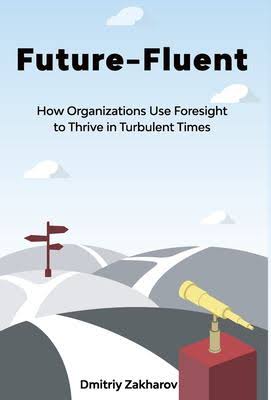“There is no question that there is an unseen world. The problem is, how far is it from midtown and how late is it open?” –Woody Allen
For the quantum physics-uninitiated, get ready for the weirdest of the weird: the many worlds interpretation of quantum mechanics.
In Quantum Weirdness 101, we talked about the wave-particle duality of sub-atomic quanta, and how they appear to be in a superposition of every possible trajectory and location until an observer measures them.
In Quantum Weirdness 102, we discussed The Copenhagen Interpretation, which basically states that reality is just fuzzy on that level. They are only potential trajectories–probabilities–interfering with each other, and this doesn’t have a measurable effect on our everyday macro world. But we also visited Schrödinger’s infamous cat–the mind experiment that poked a colossal hole in Copenhagen.

Image Credit: University of Oregon, 21st Century Science
The Copenhagen interpretation remained the most popular explanation for decades, in spite of Schrödinger. But in 1957 cosmologist Hugh Everett made an astonishing proposal. He suggested that the particles themselves–not merely their probabilities–interfere with one-another. In this interpretation, they actually take every possible trajectory, each in an alternate universe. Effectively every physically possible history exists in a huge–possibly infinite–number of alternate universes. So when we look in the box containing that possibly dead or alive cat it is actually in two universes: alive in one, dead in the other. We just see it in the one we are in. Taken to the extreme, every one of us would exist in a countless number of alternate universes. Some would be imperceptibly different from ours, in others we might not even recognize ourselves or the the world around us. And while Everett was mostly ignored or derided in his day, his many worlds interpretation has become a leading explanation of quantum weirdness, rivaling even Copenhagen.
So where do I stand? Agnostic. It is a rather optimistic world view. I hope it’s true; I’m afraid it isn’t. But many of the world’s top physicists now lean towards many worlds, and David Deutsch, among others, makes some very convincing arguments using deductive reasoning if not direct evidence. I will leave it at this: it is a strong possibility that greatly influences my millennium conjectures. For more detailed background, check out the Wikipedia articles on The Many Worlds interpretation, as well as general overview of quantum mechanics interpretations. Or if you prefer, here is an entertaining video, shamelessly lifted from YouTube.





Hilarious….
wow…
Intertaining. (In another universe it translates to Entertaining + Interesting)
I was asked why the Quantum Weirdness posts are categorized as both Ridiculous AND Sublime. The answer is easy and obvious. They are in a state of superposition, being both simultaneously!
WoW. Mind boggling! Thanks for liking my post today! I”m going to have to keep an eye on this blog. Looks right up my alley!
Thanks and same to you–yours looks pretty interesting, too. 😉
A second thought I had. Have you ever read Borges’ short story The Library of Babylon? It’s awesome, and visualizes the idea of multiple universes in such a…ahh heck. It’s just plain awesome.
Hmmm. No, not familiar with it. I will look into it.
I just read the Wikipedia article on this story. It looks awesome, and frankly, right on the money for my next Millennium Conjecture, which will be The Conjecture of Infinity. If the Universe is infinite than it is impossible for us NOT to exist.
I have no preference for one interpretation of quantum theory over any of the others: Copenhagen, Many Worlds or Bohm. Indeed, I suspect that each explanatory model is fundamentally unfalsifiable, so from a scientific standpoint, it doesn’t seem like something that stands much thinking about.
However, from a philosophical standpoint, it’s fascinating! One thing that’s always bugged me about the philosophy of the many worlds model (that I’ve never really seen anyone address) is this:
The question that statements like this always bring to my mind is: if we can’t even recognize our alternative universe counterparts as being ourselves, in what sense are they still *us?* if your life history, or your genetic code, was different would you still be you? Surely there must come a point where you and your counterpart are entirely different people.
Well, even if they are one fraction of a molecule different, are they still us? I am going to address this issue–sort of–down the road in another conjecture.
Personally I prefer Copenhagen’s, why such ‘economic’ nature would ‘have’ such a huge ammout of universes?
Why not? But there are other interpretations out there, besides those two. I abhor Copenhagen (the interpretation, not the city). It’s a cop-out, as is instrumentalism.
Yes… Why not!
Very interesting!
finally stuff about quantum mechanics that I could understand 🙂 Thanks Mark…now someone please explain the “God Particle” to me!
The first thing you should know about the “God Particle” is that the name is a misnomer. Nobody in the scientific community ever called it that. The name comes from a book of the same name by Leon Lederman, who wanted to title it “The Goddam Particle” because it had proved so elusive to find. The publisher rejected the title as offensive and shortened it to “The God Particle,” and the mass media has used that name ever since. I don’t entirely understand it myself, but here in a nutshell is what I do understand. It is (or was!) the last remaining undetected particle predicted in the “Standard Model” of particle physics. It is supposed to be the particle that gives all other particles mass. Its elusive nature was a puzzle as the Standard Model has proven to be, in every other respect, perhaps the most accurate theory in all of physics, with most of its predictions being experimentally verified to uncanny levels of precision.
thanks a ton Mark!just the kind of information I needed on it 🙂
No wonder I’m so exhausted all the time!
I liked the post and the cute Youtube video. I realized that tv shows use the multi universe and time traveling theory a lot to drive story story lines. In particular I remember and love the British show Misfits. But I do remember trying to keep track and being confused at the show’s writers own theory about how multi universes operate. I guess that’s more science fiction, but still it’s amazing how scientists choose this way to explain an awesome phenomenon.
Also, your blogroll is really helpful and informative for scientific news. Thanks for the like on my blog post as well. 🙂
Hey, you’re welcome and thank you, too. I have another good science news link which I will post soon.
Apparently these universes are decided upon choices. Human choices? Or any animal choices? Why not the choices of insects? etc.
Anyway, good stuff.